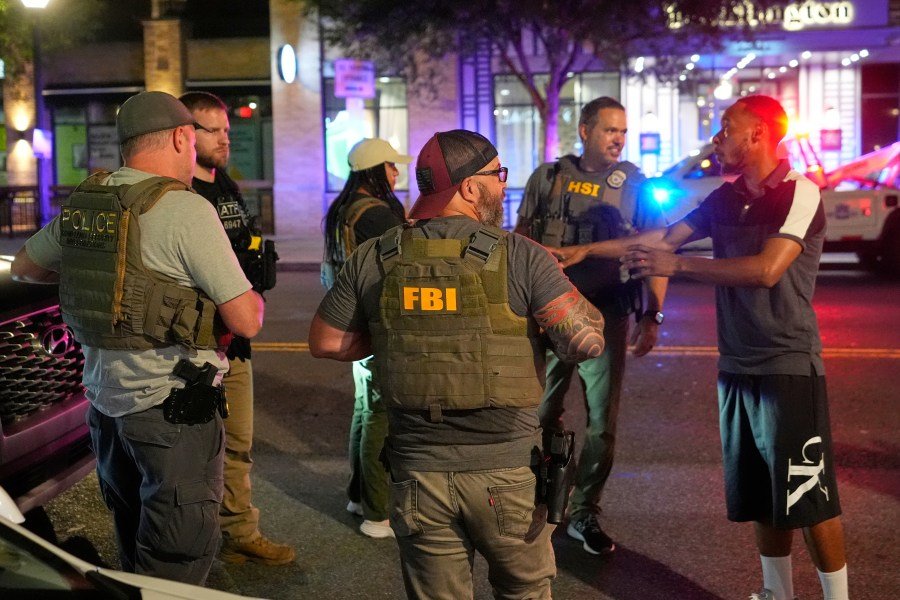D.C. in Turmoil: Trump Administration’s Controversial Police Directive – August 2025
In a surprising turn of events on a Friday in August 2025, the Trump administration announced it would allow the Washington, D.C. police chief to maintain control of the department. Simultaneously, Attorney General Pam Bondi issued a memo instructing the District’s police to collaborate with federal immigration enforcement, overriding local laws designed to protect residents.
This directive from Bondi followed a lawsuit launched by D.C. officials aimed at blocking President Donald Trump’s efforts to assume control over the city’s police. Just the night before, Trump’s administration had intensified its involvement in local law enforcement by appointing a federal official as the emergency head of the police department, which many saw as an aggressive step towards federalizing the police force.
Bondi’s latest instructions reflect a shift in strategy for the Trump administration, amidst mounting skepticism from a judge regarding the legality of her earlier orders. Nonetheless, Bondi indicated that the administration would continue to urge D.C. leaders to assist in federal immigration enforcement, despite existing city regulations limiting such cooperation.
In a social media update, Bondi criticized D.C. Attorney General Brian Schwalb for resisting their public safety initiatives, while also expressing a desire to work alongside Mayor Muriel Bowser. Following the announcement, Bowser’s office indicated they were assessing ways to comply with the new federal orders related to immigration enforcement. Although they had previously relaxed some restrictions on cooperating with federal immigration efforts, they were committed to upholding the district’s sanctuary city laws.
In a letter to D.C. residents, Bowser voiced concerns over the rising federal law enforcement presence, describing the week as "unsettling" and acknowledging the unprecedented challenges D.C.’s self-governance is facing. She urged solidarity among Washingtonians, emphasizing their fight for democracy in trying times.
The legal clash represents a significant escalation in tensions between the Republican administration and a largely Democratic city, illuminating the struggle over local governance, immigration policy, and public safety. While the Trump administration pushed its tough-on-crime agenda, D.C. had experienced a rise in violence, yet its homicide rate remained comparatively low.
U.S. District Judge Ana Reyes, presiding over the case, suggested a likely limitation on the Trump administration’s power to fully control the city’s police, although she acknowledged the president’s authority was broader than the city might prefer.
The Trump administration’s attempts to assert control come amidst ongoing debates about the limits of federal authority over local governance. Historically, the D.C. government has enjoyed a degree of autonomy with elected officials since the Home Rule Act of 1973, and the current administration’s actions are tests of this delicate balance.
Simultaneously, the head of the Drug Enforcement Administration, Terry Cole, was appointed to lead the police department, contradicting Police Chief Pamela Smith’s earlier directive for officers to share information with immigration authorities regarding individuals not in custody. Illegal immigration advocates, notably groups like Ayuda, voiced concerns about this change, urging caution in how they advise immigrant communities.
As the weekend neared, there were clear signs of intensified federal presence, with National Guard troops stationed at key locations and federal agents conducting patrols throughout the city. Reports indicated an uptick in immigration enforcement actions, raising anxiety among residents.
Protests erupted as over 100 individuals rallied outside police headquarters, chanting "Protect home rule!" and pushing back against perceived federal overreach. The scene highlighted the increasing discontent among Washingtonians facing the dual pressures of federal policies and the ongoing complexities of urban governance.
This episode marks a pivotal moment in the ongoing saga of D.C.’s fight for self-determination amidst federal oversight, shaping the discourse around immigration and local autonomy.

